The Story Behind Comic Book Movies
From the page to the screen…
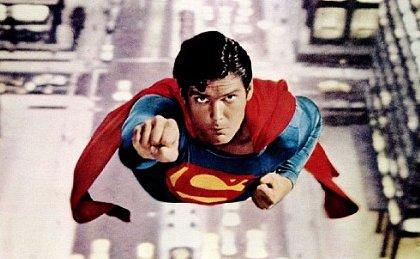
Comic book movies are all the rage.
Though 2010 may have been a bit of a lean year in the superhero stakes, a quick glimpse into the future reveals that new adventures for Spidey, Thor, Batman, Captain America, Green Lantern and the X-Men are all on the way. Not to mention the most ambitious comic book movie ever – The Avengers .
Why have the pages of Marvel and DC suddenly become so popular on the big screen? Let's ask Thor himself…
“There are different waves constantly in the business,” Chris Hemsworth told Total Film at this year’s Comic-Con, “what’s popular and what’s not. Sure, it might dry up at some point, or it might not!
“Video games and superhero movies and 3D seem to be the craze at the moment. I have no idea where that will go in the future.”
As a famous folk song once posited, where did we come from, where did we go? Well, let’s take a look…
Next: Origins [page-break]
Origins
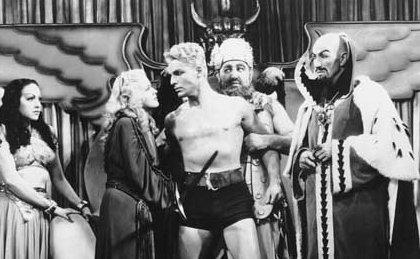
“Video game characters and comic book characters are very different; there’s just something about comic book characters that translates very well to the big screen. They tend to be quite iconic.”
Mark Millar had it right when he told us earlier this year that superheroes were made to be icons. They are brightly-coloured, hyper versions of ourselves – endowed with special abilities, yet prone to the same frailties that we lowly humans suffer through on a daily basis.
Interesting, then, that the first comic book movies tended to overlook this basic principal in favour of painting larger-than-life characters who were more hero than human.
The first ever comic book flick, Flash Gordon in 1936, was a serialised TV movie in three parts that was later crunched into one single film. Despite its rudimentary fashion, it set the mould for comic adaptations for years to come. Namely: cheap is the word.
Despite Gordon being viewed as a chance to garner an adult audience, comics were still deemed as things for kids, and little was spent on these early productions.
Flash Gordon was made for a reported $350,000 (though rumours abound that it actually cost more like $1m), with numerous Universal sets and props recycled for the movie (including the watchtower from 1931’s Frankenstein ).
Next: A New Face [page-break]
A New Face
Sign up for the Total Film Newsletter
Bringing all the latest movie news, features, and reviews to your inbox
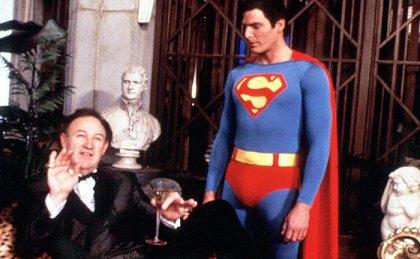
“I saw tremendous potential for a motion picture,” says director Richard Donner. “He's Americana.”
Donner is, of course, talking about DC Comics favourite Superman . With the ‘60s and ‘70s all-but a dead zone for the movie superhero (and heroine), he was about to embark on one of the most ambitious projects ever – yes, he was going to make a man (ney, a super man) fly.
The circumstances surrounding the making of his 1978 movie are the thing of legend.
“Maybe in a strange way, I was defending it,” Donner explains of why he signed on to direct. “I was tweaked by the idea of Superman immediately, but then when I realised it was going to be produced by some Hungarians whose office was in Costa Rica and they had never been there in their life, and it was going to be directed by and Englishman in Italy.
“I thought, ‘What the fuck are they doing to Superman?’ It’s apple pie and ice cream and Americana. It's Norman Rockwell. It's ‘Don't Tread On Me’. In a strange way, I felt that I've got to do this.
“The moment I got into it – read it – I felt, ‘Oh man, what a challenge this is going to be.’ I knew I was up to the challenge, having done The Omen and realized what you could do in motion pictures by surrounding yourself with geniuses. I readily accepted the challenge.”
Next: Camp Returns [page-break]
Camp Returns
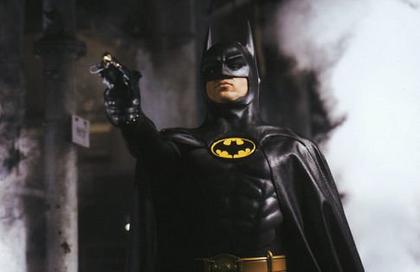
By the ‘90s, it seemed Hollywood was again unsure how to make a superhero movie. Though Tim Burton’s Batman had mopped up in 1989 with a lighter, pop-arty approach, filmmakers appeared to have ignored the lessons that Superman had taught them.
“I was lucky when I made Batman because, at the time, it felt like new territory,” Burton told Total Film in 2007. “We went back to the traditions of the comic and they were usually light and cartoony. It was exciting. Then, all of a sudden, every comic-book hero is a tortured soul in a funny costume.”
While more family-friendly fare like Teenage Mutant Ninja Turtles and The Addams Family proved profitable (as well as fun), comic book movies were nose-diving.
Marvel’s 1991 version of Captain America, starring Matt Salinger in a very silly rubber suit and Scott Paulin as Red Skull, failed to get a cinematic release, and Roger Corman’s 1994 Fantastic Four failed to see the light of day at all.
It was Joel Schumacher who really hammered the nail into the coffin, though, as he tag-teamed the Batman film franchise from Burton and created two further neon-splattered sequels that squatted all over the screen-verse Burton had so carefully crafted.
Next: The Serious Superhero [page-break]
The Serious Superhero
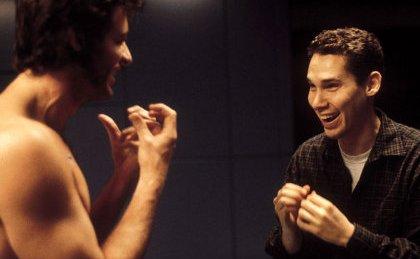
In 2000, a little movie called X-Men came out. Directed by the guy who helmed The Usual Suspects , starring some Aussie with claws and that chick out of The Piano , it was just another superhero flick that was sure to disappoint.
Except it didn’t. Opening in the number one spot with $54m, the film has now acquired a total worldwide haul of $296m. Even better, fans and critics alike lapped it up.
For Bryan Singer, it was all about the story...
“I was not familiar with X-Men ,” he tells Total Film . “What inspired me initially was the idea that they were reluctant superheroes, living in a world that hates and fears them. That struck me as very interesting, a little more depth than just revenge or fighting for the sake of it.
“The idea of being born the way you are, searching for acceptance – it’s what every adolescent experiences at one point or another. It’s what I experience every day.”
The Noughties was when superheroes got serious. Devoting their time to staying pain-stakingly true to the comic pages that inspired them, comic book movies suddenly equalled dollar signs. And Hollywood knew that if it wanted to keep drawing in the crowds, something had to change.
Following the blueprint of X-Men and Donner’s Superman , Sam Raimi’s Spider-Man stuck close to Spidey lore (with a few notable adjustments) and became one of the biggest grossing comic book movies ever. Dealing with issues of responsibility and family, others followed, ahem, suit, with Hellboy and Hulk both lensing their stories in swathing shadows.
Even Alan Moore's 'unfilmable' Watchmen made it to the big screen with expectation-shatteringly spectacular results.
Next: The Future [page-break]
The Future
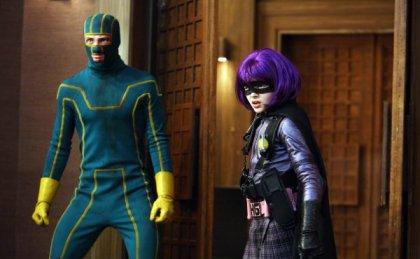
Where do we go from here? Well, if the Noughties were the age of the Serious Superhero, this new decade appears to be the age of reflexivity and reboots.
“I think the genre’s always having to reinvent itself,” says Tim Burton, “and, obviously, comics are a kind of modern folk tale that can stand to be re-told and re-looked at in many different ways. But I think the dark tortured comic-book hero… Well, I think it’s time for a new angle. Maybe it’s time to go back to the brightly coloured cartoon.”
As Scream showed back in the mid-’90s, when a genre turns on itself and starts delivering material with a self-knowing wink, things are definitely shifting. In the comic book realm, examples of this are already evident with Kick-Ass .
Taking the Spider-Man mythos and bringing it bang up to date, Kick-Ass asks what would happen if a normal human being (crucially, one not backed-up by a trust-fund and his own corporation) put on a suit and decided to fight crime.
The result is Mark Millar’s bloody, knowing and hilarious comic, transformed into a Matthew Vaughn movie just this year. Already, similar ideas are being touted in the movies.
James Gunn’s Super features Rainn Wilson as a wannabe hero who transforms himself into the Crimson Bolt in an attempt to win his wife back. And there is, of course, Kick-Ass 2 on the horizon…
Meanwhile, previously profitable comic franchises are being rebooted all over the place. Spider-Man has a new geeky Peter Parker in Andrew Garfield, the Fantastic Four are due a re-do (with a CGI Thing), and Matthew Vaughn is steering mutant prequel X-Men: First Class .
Then there’s the tricky issue of The Avengers . A long time in the making, it could just make or break the superhero movie mould. With Joss Whedon recently confirmed as the flick’s director, our hopes remain high. And he certainly seems to have his priorities in the right place.
“The thing that made me excited to do it was just how completely counterintuitive it is,” Whedon says. “It makes no sense. These people should not even be in the same room, let alone on the same team. And that, to me, is the very definition of family.”
Will the comic storm eventually blow itself out of puff? Perhaps. But if we've learnt anything from comics, in this world, anything can happen...
Like This? Then try...
- The Story Behind Iron Man
- The Story Behind Scott Pilgrim
- The Story Behind Wall Street: Money Never Sleeps
Sign up for our free weekly newsletter here .
Follow us on Twitter here .
Josh Winning has worn a lot of hats over the years. Contributing Editor at Total Film, writer for SFX, and senior film writer at the Radio Times. Josh has also penned a novel about mysteries and monsters, is the co-host of a movie podcast, and has a library of pretty phenomenal stories from visiting some of the biggest TV and film sets in the world. He would also like you to know that he "lives for cat videos..." Don't we all, Josh. Don't we all.


